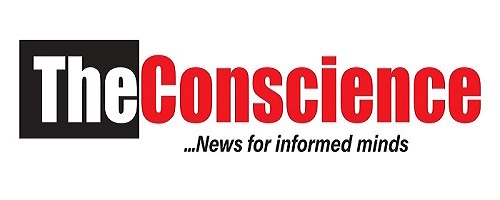Tingo’s stocks crumble over fraud allegations
By THECONSCIENCEng
Tingo, a New Jersey-based group of fintech firms founded by a Nigerian entrepreneur, on Tuesday, faced scores of railing allegations from Hindenburg Research, blasting its market value.
From misrepresentation to tax delinquency and accounting fraud, the accusations by the short-seller sent Tingo Group’s share price crashing by roughly half on Nasdaq as investors’ confidence sank.
Hindenburg alleged on its website it came to the knowledge that Dozy Mmobuosi, the founder, falsely professed to hold a PhD in rural advancement from a Malaysian University in 2007 after the school said no such name features in its record.
The 43-year-old is the chief executive at Tingo International Holdings, the parent company of Tingo.

Ogun govt orders investigation into killing of TASUED student
The investment research house stated that Mr Mmobuosi claimed to have created Nigeria’s first mobile payment app. In contrast, the actual developer of the app has described the assertion as “a pure lie.”
“In 2019, Dozy claimed to have launched “Tingo Airlines” and posted social media messages encouraging customers to “fly with Tingo Airlines today,” Hindenburg said.
“Media outlets later uncovered that Tingo had photoshopped its logo onto pictures of airplanes. Dozy later admitted to never owning any actual aircraft.”
An eight-count charge by the Economic and Financial Crimes Commission centring on the issuance of bad checks led to Mr Mbobuosi’s arrest in 2017 before arbitration laid the case to rest.
According to Reuters, Tingo Group is the fourth target of the short-selling firm this year, having exposed Adani Group’s misuse of offshore tax havens, a disclosure chopping off $100 billion from the latter’s valuation.
Icahn Enterprises, a conglomerate of seven businesses, lost 20 per cent of its market capitalisation after Hindenburg brought evidence of it overvaluing its shares and relying on a “Ponzi-like” structure to pay dividends.
Hindenburg, in March, aimed Block Inc, a payments company led by Twitter co-founder Jack Dorsey, on discovering that the organisation deceitfully increased its user numbers and understated its spending on customer acquisition.
“The report represents their own opinion and is designed to benefit a short position taken by them and their associates from which they stand to realize sizeable gains,” Tingo Group said of the Hindenburg statement, dismissing the almost 30 allegations as false.
Founded in 2001, Tingo said its mission was to take mobile technology solutions to rural Nigeria.

This April, Mr Mmobuosi tabled an offer of £150 million to buy Sheffield United, bucking up the bid after the football club gained promotion to the English Premier League. This deal would have made him the first black owner of a premiership side if it were completed.
That is at variance with his disclosure to CNN during a February interview when he claimed to have already “made a deposit” as a gesture of seriousness to buy the club.
Deteriorating Health: We must save ourselves from chemical farming – Expert warns
According to Reuters, Tingo is the fourth stock Hindenburg will aim at this year, with three previous comprising India’s Adani Group, Block Inc headed by Twitter’s co-founder Jack Dorsey and Icahn Enterprises, the biggest company of American financier Carl Icahn’s conglomerate of seven firms.
Adani Group, the empire controlled by Gautam Adani, the world’s 24th richest man by Forbes ranking, lost $100 billion in valuation at the beginning of May following Hindenburg’s revelation of its improper use of offshore tax havens.
Earlier in January, Hindenburg’s exposure of schemes at Icahn Enterprises overvaluing its shares and the corporation’s reliance on a “Ponzi-like” structure to pay dividends to shareholders caused it to shed 20 per cent of its market value.
Hindenburg made a name for itself by publishing explosive reports about businesses and short-selling the stocks of the companies associated with them.
Short-sellers typically borrow securities from their brokerage firm, aiming to sell them when their prices fall so they could buy them back at cheaper prices and then make a profit through speculation.


























